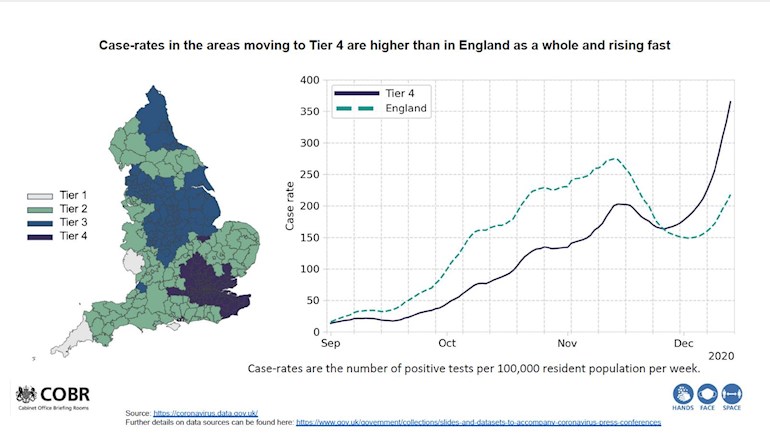As we learned yesterday evening, a new and more infectious Covid strain, named VUI-202012/01 or B.1.1.7, recently emerged in London and southeast England theguardian.com/world/2020/... With crowds fleeing the capital last night, before a travel ban came into effect, it seems almost certain that the new strain will take root elsewhere.
Concerns about the new strain are:
- its potential to turbocharge the spread of the virus, infect greater numbers and overwhelm the health service - at the moment this is a distinct possibility
- its potential to make people more severely ill - at the moment there is no evidence for this
- its potential to make vaccines less effective - at the moment there is no evidence for this.
So who are the scientists tasked with analysing coronavirus mutations and their effects on the course of the pandemic? In the UK it's the Covid-19 Genomics UK Consortium (COG-UK), whose preliminary assessment of variant B.1.1.7 says:
"This variant has 17 mutations (the 14 amino acid replacements and 3 in-frame deletions are listed in Table 1b). Two of these mutations have already been described to alter SARS-CoV-2 biology: N501Y sits in the receptor binding motif (RBM) of the Spike protein, and has been described to increase binding affinity to the human ACE-2 receptor; 69-70del has been identified in variants associated with immune escape in immunocompromised patients and is responsible for a “dropout” in the S gene PCR target in certain diagnostic tests (e.g. Thermo Fisher TaqPath). These tests target multiple regions of the virus genome, so the test itself is not compromised. Reported cases and phylogenetic analyses have indicated an exceptional rate of introduction of mutations into this lineage. It has been hypothesised that this lineage may have resulted from the transmission of the virus from a chronically-infected individual. This is based on observations that a high rate of mutations may accumulate In immunocompromised patients with chronic infections of SARS-COV-2" cogconsortium.uk/wp-content...
On a global scale the epidemiology of the virus is monitored by nextstrain.org/ncov/global


